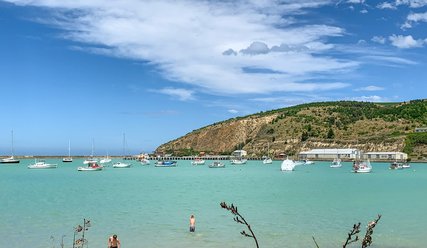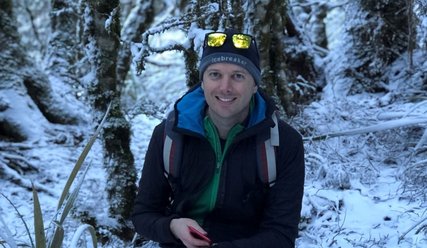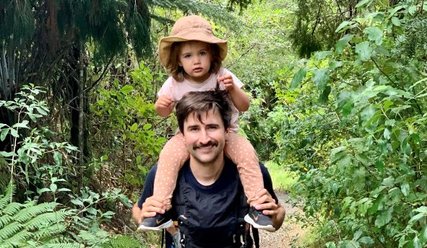Meet Dr Emma Davey, Rural hospital doctor
Originally from Manchester, Emma now lives in a tiny seaside town just out of Hawera in South Taranaki with a population of around 600. So what made her choose this small-town, rural lifestyle? We thought we’d find out:
Tell us how you came to be in Ohawe Beach?
Well, I did my medical training in Leeds, in the UK, but soon after that I came to New Zealand looking for inspiration and opportunities to try different specialties.
The Division of Rural Hospital Medicine training pathway was very new at that time, and it held lots of appeal. I thought I’d give it a go since I had always enjoyed working outside of the cities in the UK. It’s been an amazing experience.
When I gained Fellowship in 2014, an opportunity came up at Hawera Hospital. My husband was able to transfer to Taranaki with his work, so here we are! We’ve been here three-and-a-half years now and we love it.
What did you like most about the DRHM training?
There are lots of things, including being able to work all across the country – from the South of the South Island, all the way up to the North of the North Island.
My work has been extremely interesting and varied, which has made it really enjoyable.
It’s so flexible, you get to try a bit of everything - I particularly liked the opportunities to experience ICU, Paediatrics, and Emergency Medicine and to bring some unique skills back to a rural hospital generalist environment where I learned the importance of continuity of care.
I guess I was always destined to be a generalist, but being a rural generalist is just the best.
The academic component of the DRHM training really complements the practical work, but I have to say it’s the people that make the training so special.
I did my clinical runs over four years at different places around New Zealand, and I found it was such a privilege to learn from some incredibly humble, experienced rural doctors.
I also really enjoyed meeting and caring for diverse groups of people. The cultural and clinical differences amongst the different populations allowed me to compare and learn in a very unique way.
What are the positives about rural medicine?
Personally I enjoy the clinical autonomy – there’s not a lot of bureaucracy or hierarchy. It’s one team working together. You learn to think outside the square.
The lifestyle is amazing too of course. I get to live in a beautiful setting by the sea and have a stunning mountain view, with a very short commute to work.
Becoming part of a local community, part of something bigger than just work, is a real upside.
I didn’t really think about that until it happened, but it’s definitely a benefit – one that’s a lot harder to find in urban centres.


